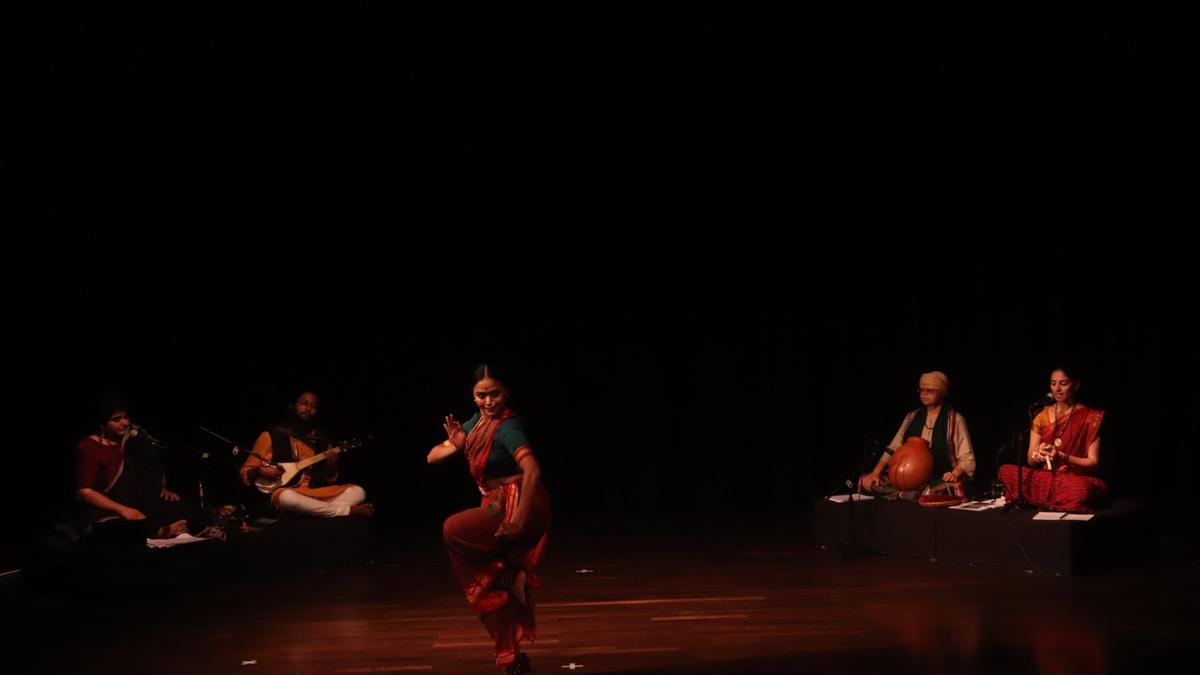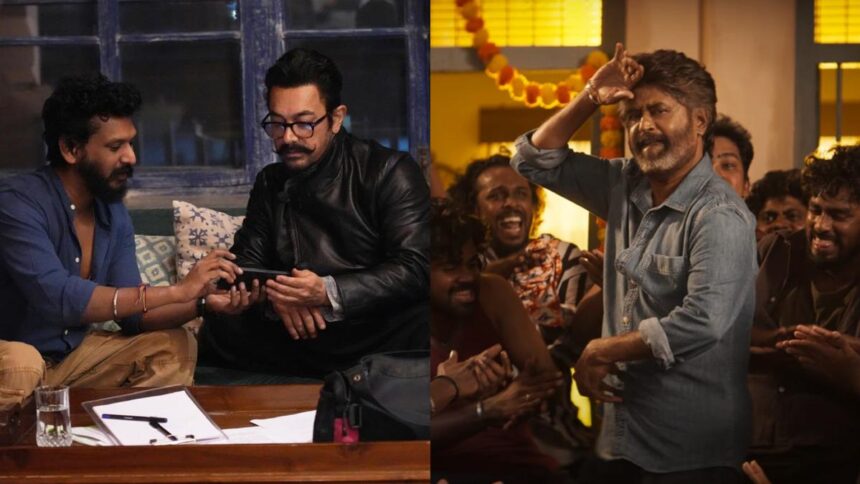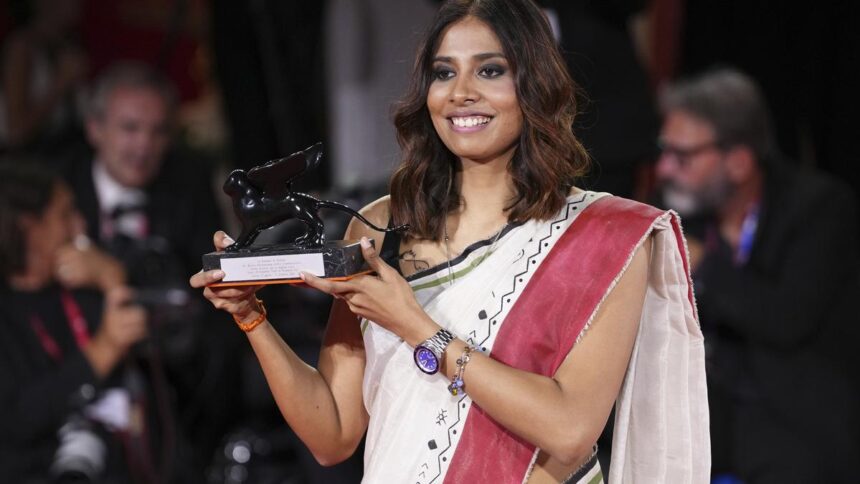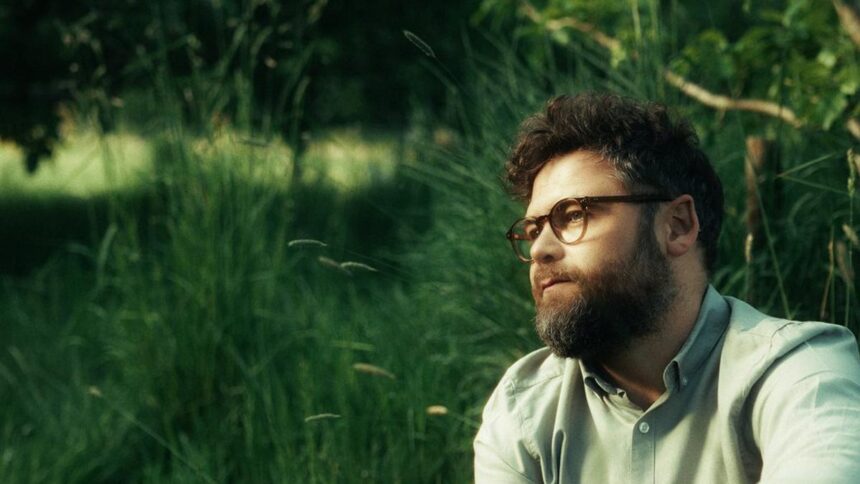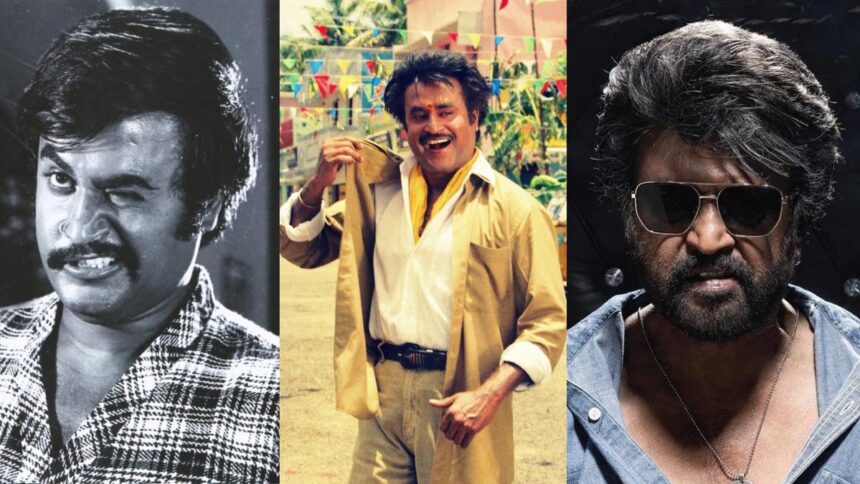
From Bahinabai Chaudhari – The Soul of Soil
| Photo Credit: Courtesy: Biju Photography
It was refreshing to witness a performance rooted in a classical form, yet wearing its classicism lightly. Bahinabai Chaudhari – The Soul of Soil, performed recently at Bangalore International Centre (BIC), was unusual on many counts. The performance cast light on Bahinabai — a farmer-poet from Maharashtra. Choreographer Vaishnavi Dhore’s dance — not traditional Bharatanatyam, but speaking a language derived from it, seamlessly sharing the space with Shruthi Veena Vishwanath’s music that the latter had composed based on the poetry.
Accompanists — Shayan Sinha on the dotara, Sumana Chandrashekar on the ghatam and nattuvangam by Sanjana Gogate — added to the distinctive voice of the performance. The ensemble of artistes collectively brought alive the ruminations of a farmer, labourer, mother, poet, caregiver, nature-lover, thinker and philosopher. Existing only as oral poetry in her lifetime, Bahinabai’s works were published after her death, by her son Sopandev.
Bahinabai’s poetry reflects her relationship with Nature, questions on life and death and highlights the difficulties she faced as a dry-land cotton farmer and a single mother raising three children (she was widowed at the age of 29). One of her poems laments the social isolation and pain inflicted by plague that left her firstborn with a permanent disability. Her poems also map her love for Vitthala. Universities in Maharashtra have been renamed in Bahinabai’s memory and her poems are now studied in schools and colleges.
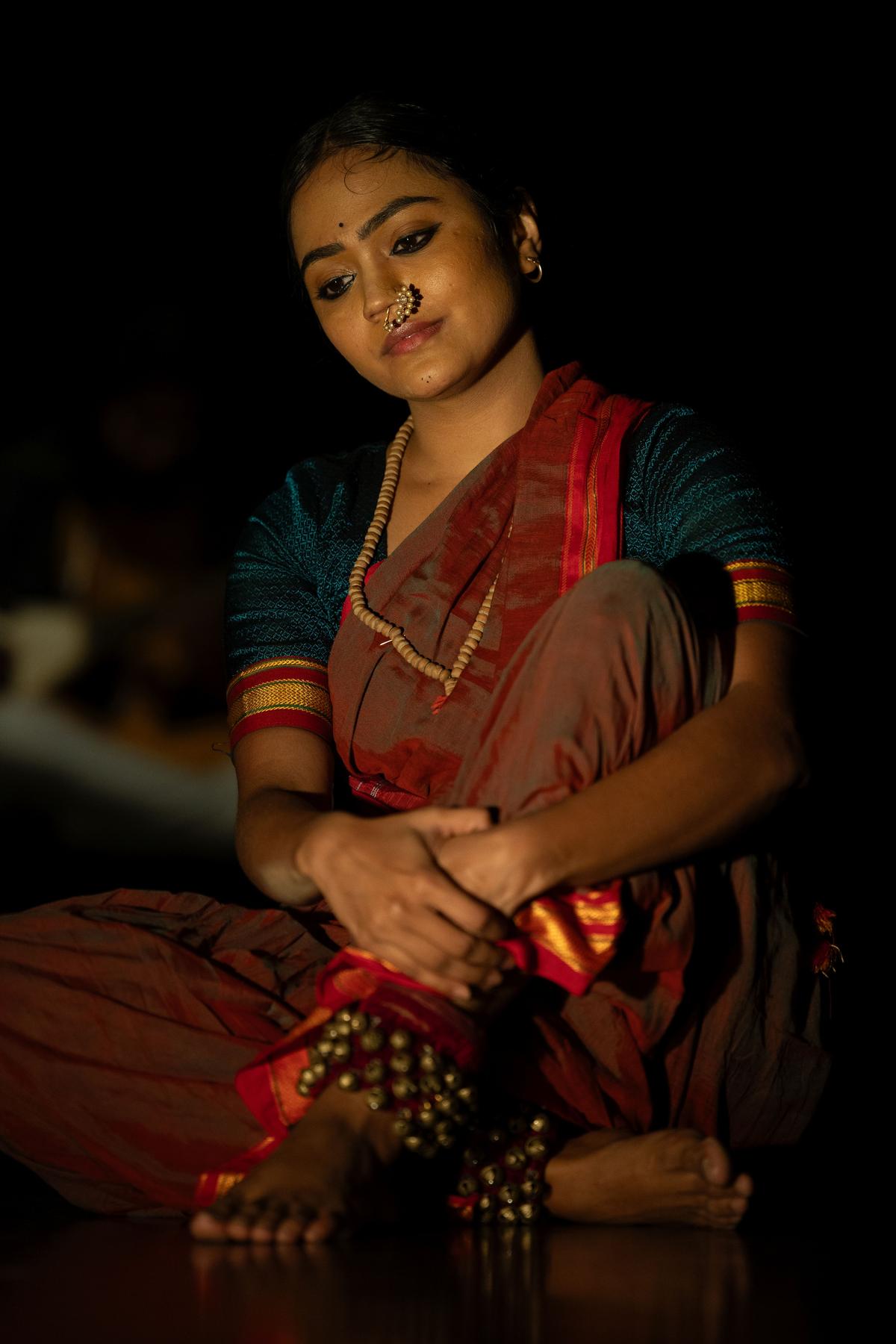
Vaishnavi Dhore
| Photo Credit:
Courtesy: Biju Photography
The performance depicted a woman working in the fields, often alone. Through intimate conversations among song, dance and poetry, we saw a woman celebrating a weaver bird’s nest, planting, weeding, watering, speaking with god and caring for children. Conceptualised by Vaishnavi, the performance was scripted by Shruthi, whose expressive singing complemented the dancer’s abhinaya.
Vaishnavi recalls being deeply impacted by Bahinabai’s “powerful and profound poetry” as a school girl. “Coming from a farming background myself, I carried a lot of shame about my roots. Dance helped me embrace my identity. My guru Rama Vaidyanathan guided me in putting together this production,” says Vaishnavi, for whom this work is about celebrating a woman, who defied norms and spoke through silence, across generations. “It is as much about honouring my roots as about honouring Bahinabai.”
Speaking of the creative process, Vaishnavi says, she used “Bharatanatyam as a framework.” She “wanted the body to speak the language of a farmer woman.” While designing costumes, she chose the nauvari (traditional nine-yard saree of Maharashtra), for its “earthy quality that resonated with Bahinabai’s spirit.” She kept the makeup and jewellery minimalistic to “ground the performance in authenticity and allow the dance to remain the focal point.” Vaishnavi reached out to Shruthi as a collaborator because her voice sounded “nurturing and strong. I instinctively felt she was right for this work,” shares Vaishnavi.
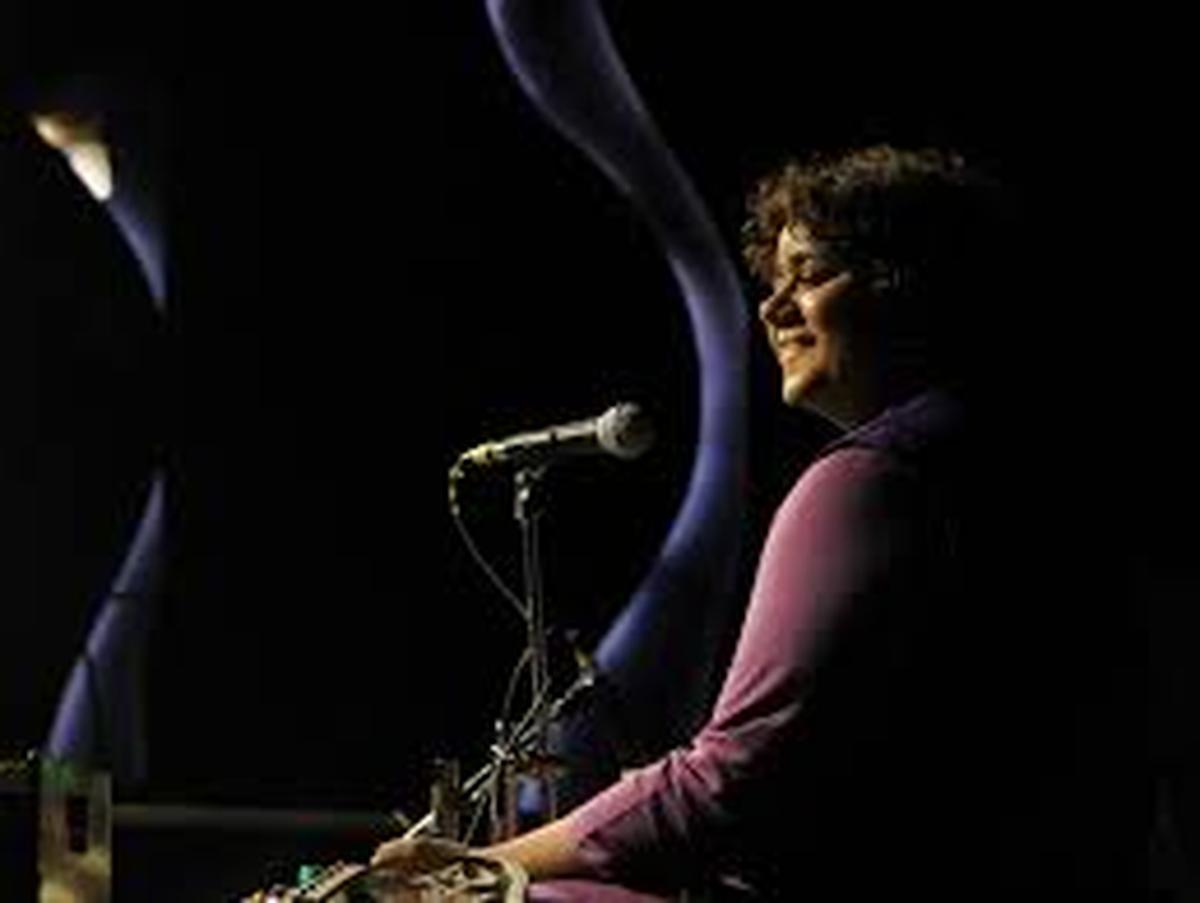
Shruthi Veena Vishwanath
| Photo Credit:
Special Arrangement
Though Shruthi had reservations about how Bahinabai’s poetry could be expressed in the Bharatanatyam format, she came on board when she saw how Vaishnavi, like her, constantly challenges form and reinterprets training. Shruthi adds: “Vaishnavi and I strongly advocate anti-caste messaging, rootedness in practice, and spontaneity on stage. In this piece, the lighting is intentionally minimal and the narrative non-linear and bilingual.”
Shruthi finds Bahinabai’s poetry special for its visceral connection with the land. “Bahinabai finds bhakti in seeds breaking forth from the soil. And she is completely bound to sansaar — her family. Widowed young, she was left with debts to repay. She worked as a labourer, even breaking rocks for the construction of a dam. There is no dreamy-eyed devotion here; it is rooted in the grainy truths of a mother’s body and the stubbornness of the earth. And yet, through all that hardship, Bahinabai’s words bloom with beauty and tenderness,” explains Shruthi.
Published – September 08, 2025 03:06 pm IST







